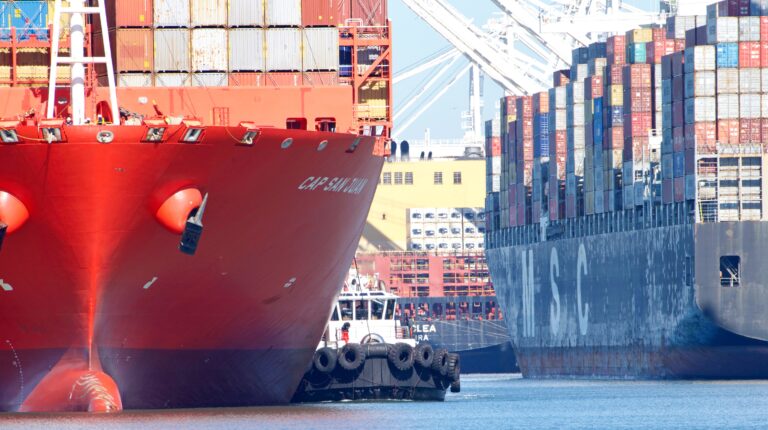California port congestion continues with an early peak season looming

Peak shipping season is approaching quickly and the congestion of California ports continue, with Oakland surpassing Los Angeles/Long Beach as the epicenter of the crowding.
Shipping giant Maersk warned in a customer advisory that Los Angeles and Long Beach "remain strained with vessel wait times averaging between one to two weeks," according to American Shipper.
But the company was reported as saying that, "the situation is even more dire at the Port of Oakland, where wait times now extend up to three weeks."
West Coast port delays are having severe fallout for liner schedules and the congestion is equating to canceled voyages as ships can't get back to Asia in time to load cargo.
Even as U.S. import demand soars, the effective capacity in the trans-Pacific trade is being sharply curtailed by voyage cancellations, the news source reported.
Maersk said that 20 percent of its capacity from Asia to the West Coast has been lost year-to-date as a result of operationally induced “blank”, or canceled, sailings.
It currently expects 16 percent of its Asia-West Coast capacity to be lost from now until the end of June and 13 percent to be lost from now until the end of August.
To put current cancellations in context, they are now running at the same percentage that carriers intentionally blanked in Q2 2020 to compensate for the sudden collapse of import demand when U.S. businesses were shuttered by nationwide lockdowns.
Previously, Port of Los Angeles Executive Director Gene Seroka voiced a goal of June 1 for "few if any ships" at anchor in San Pedro Bay, however, that deadline will not be met.
The daily number of ships in the bay is down from January, though numbers have refused to fall further. As of a week ago, there were still 20 ships at anchor in San Pedro Bay.
When asked about his June 1 target for clear anchorages, Seroka told American Shipper, “Import volume continues to be heavy and consistent, more than we had anticipated earlier this year."
"Reduction in dwell times is leveling off and the subsequent decline in [ships at] anchorage has slowed. Our goal remains to clear as much of the at-anchorage situation as possible prior to late summer and the start of the traditional peak season.”
Maersk said peak season is expected to start early this year as retailers prepare for a strong back-to-school season that will likely blend into the end-of-year holiday peak season that typically starts in August.
According to carriers Maersk and Hapag-Lloyd, the problem at Oakland is a shortage of available longshore labor.















































